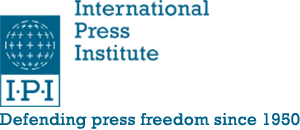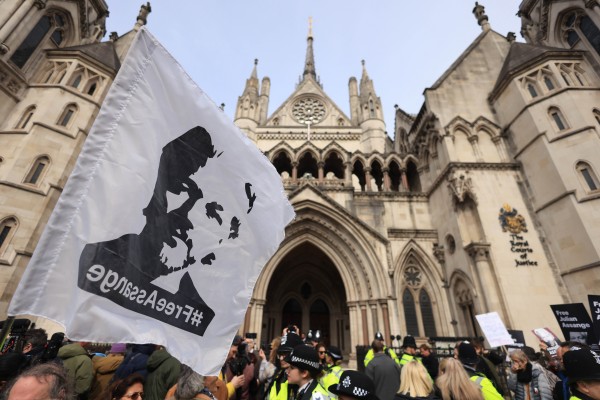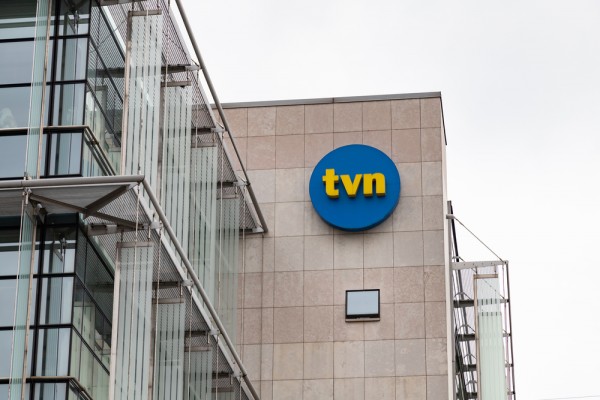The International Press Institute (IPI), together with its Czech National Committee and the Endowment Fund for Independent Journalism (NFNZ), held a joint two-day conference “European Journalism Now” in Prague on December 1-2, focusing on the evaluation of quality journalism, the state capture of the media in Central and Eastern Europe and the European Media Freedom Act (EMFA).
The first day was led by the NFNZ. It brought together experts from the Media Pluralism Monitor , the Journalism Trust Initiative and the EuroMedia Ownership Monitor to discuss whether a comprehensive framework for media evaluation in Europe is possible. The keynote speech was given by Jiří Kučera from the NFNZ.
The second day was led by the IPI. It brought together leading editors, journalists, media experts and representatives of media freedom organizations to discuss media cooptation and the need for a strong European Media Freedom Act (EMFA) to protect European democracy.
Opening the session, IPI Executive Director Frane Maroević said: “The IPI, along with a group of media organizations, welcomes the EMFA because it defines and addresses many of the issues facing the media today. We all want to work with the EU, to strengthen this act as a tool to ensure media pluralism, protect journalists’ rights and ensure editorial independence.”
The conference started on Friday with a keynote speech by European Commission Vice-President and Commissioner for Values and Transparency, Věra Jourová.
The EMFA was published by the European Commission in September 2022 and welcomed by several journalist groups and international and national press freedom organisations, including the IPI, as an important step forward in the collective effort to strengthen the free and pluralistic media system in the EU .
Commissioner Jourová pointed out that the media in Europe face numerous challenges, ranging from economic pressures to disinformation and declining public trust. “What I always say is that lawmakers shouldn’t work under pressure and shouldn’t be driven by hysteria or fear. But when I was working on the law, I was driven by frustration because we’ve seen a lot of decisions that fill the space for independent media in the EU, especially in Poland and Hungary,” she said.
“What we are doing with the planning of the law is to regulate the space for media, the environment and the conditions that allow them to do their job properly,” continued Jourová.
The provisions of the EMFA include improved transparency of media ownership, strict criteria and transparency in the distribution of state advertising funds to the media and improved protection against politically motivated occupations in public service media, as well as a new pan-European committee of national regulators, which will introduce the new rules monitored.
Jourová said that in recent weeks she had the opportunity to collect member states’ reactions and opinions on the EMFA by consulting culture ministers. “The law had very strong support from Bulgaria, Croatia, Slovakia, Slovenia, Greece and Malta. Hungary said the EU had no legal competence, which was a bit expected. We’ve had criticism from Germany, Austria and Denmark, mostly , because they felt that they already have a good system and do not want the EU to intervene in it,” explained Jourová.
After her speech, Jourová spent an hour answering questions from the audience, many of which were about the enforceability of the law. How does this work in practice? Could it backfire in certain countries? Jourová responded to these questions that the countries may need an active push from the EU. “We are not naive about the situation in the Member States,” said Jourová.

Marius Dragomir (center), Founding Director of the Media and Journalism Research Center, spoke at the Media Capture Roundtable, alongside IPI’s Europe Advocacy Officer Jamie Wiseman (right) and IPI Czech National Committee Chair Veronika Sedláčková. Photo: Ronja Koskinen / International Press Institute
Round table: Media capture in action
In the first roundtable session of the day, titled “Media Capture in Action”, IPI brought together senior editors from Central and Eastern European countries where the issue of media capture is most acute, including Hungary, Bulgaria, Poland, Slovenia, Slovakia , Greece and the Czech Republic,
The session explored media hogging and its impact on free and independent journalism and continued the conversation from day one of the conference when the IPI panel discussed media freedom in the Czech Republic.
The capture of the media for political and economic interests through political influence and control is one of the greatest challenges to press freedom across the EU. In Hungary , Poland, Slovenia , Slovakia, Bulgaria and the Czech Republic , media cooptation has squeezed investigative journalism and eroded media pluralism. During the roundtable, panellists noted that many of the countries face similar challenges and threats related to media capture.
“The media monopolization has a lasting effect on journalistic values and manipulates the preferences of the audience. It is reinventing the entire media ecosystem,” says media scientist and journalist Marius Dragomir, who is also the founding director of the Research Center for Media and Journalism.
In many countries, illiberal governments have abused state economic and regulatory powers to seize control of public service media, media regulators, state-controlled companies, advertising agencies, competition regulators and even the courts, he said. One of these countries is Hungary.
“Hungary is the epitome of all concerns regarding European media,” said Veronika Munk, head of content at independent Hungarian media company Telex. “The market is heavily influenced by politics and the government media gets a lot of advertising. It all goes back to the media structure, how media is connected to politicians.”
The IPI and its board conducted a press freedom mission to Hungary in February 2022 . In the report released after the mission , IPI found that the ruling Fidesz party has developed the most sophisticated system of media capture ever pursued within the EU, aimed at exerting an unprecedented level of political control over the country’s media ecosystem.
During the round table discussions, Beata Balogová, editor-in-chief of the Slovak daily newspaper SME, noted that the media situation in Hungary is spreading across national borders and also affects Slovakia. However, there is still hope, Balogová noted. “The Slovak media still have a voice. When they point something out, it has an impact on society.”
Michal Klima, Advisor on Media Freedom and Disinformation of the Government of the Czech Republic, Veronika Sedláčková, Chairwoman of the Czech National Committee of the IPI, Marton Gergély, Editor-in-Chief of HVG in Hungary, Piotr Stasinski, Deputy Editor-in-Chief of Gazeta Wyborcza in Poland, Velislava Popova, Editor of Dnevnik in Bulgaria and journalist Boryana Dzhambazova from Bulgaria, also contributed to the roundtable on media capture.

In the closing session of the conference, the EMFA was analyzed in detail. A number of panellists attended the roundtable online, including Audrius Perkauskas, Deputy Head of Unit for Audiovisual and Media Policy at the European Commission. Photo: Ronja Koskinen / International Press Institute
EMFA: Strong enough to tackle media acquisition?
Die zweite und letzte Sitzung des Tages lenkte die Aufmerksamkeit wieder auf das Europäische Medienfreiheitsgesetz. Ziel der Sitzung war es, Medienexperten, Verleger und Pressefreiheitsgruppen zusammenzubringen, um die EMFA zu überprüfen und zu bewerten, ob sie in ihrer derzeitigen Form die Medienvereinnahmung bekämpfen und die Verbesserungen ermitteln kann, die zur Erreichung ihrer Ziele erforderlich sind.
Die Diskussionsteilnehmer waren sich einig, dass die EMFA ein Schritt in die richtige Richtung und ein guter Anfang ist. Eine der wiederholten Bedenken, die die Diskussionsteilnehmer feststellten, war jedoch, wie das Gesetz in der Praxis funktionieren wird.
Renate Schroeder, die Direktorin der Europäischen Journalistenföderation, stellte fest, dass das Gesetz zu einem Soft Law werden könnte, ohne die beabsichtigte und erforderliche Wirkung zu haben. “Was zum Beispiel in Ungarn passiert, können wir mit dieser Tat nicht lösen”, sagte sie.
Die Diskussionsteilnehmer waren sich einig, dass die EMFA noch mehr Arbeit benötigt, um sich zu verbessern. Es wurde vereinbart, dass die Gesetzgebung keine konkreten Maßnahmen enthält, wie sie die Medienerfassung praktisch angehen wird. Wo Transparenz begrüßt wird, ist sie nur ein Schritt in die richtige Richtung.
Aurore Raoux, die EU-Politikmanagerin von News Media Europe, stellte fest, dass es unterschiedliche Interpretationen des Gesetzes gibt, da jeder es mit seiner eigenen nationalen Perspektive versteht.
Maria Luisa Stasi, Leiterin Recht und Politik für digitale Märkte von ARTIKEL 19, äußerte sich besorgt über eine mögliche Politisierung des vorgeschlagenen Medienausschusses. “Es könnte sich leicht herausstellen, dass Vorstandsmitglieder eine Sache zu Brüssel sagen und dann die Medienfreiheit in ihrem eigenen Land missbrauchen.”
Die Experten waren sich einig, dass die Stärkung der EMFA Anstrengungen beinhalten muss, um die Transparenz des Medieneigentums mit klaren Regeln anstelle von Soft-Law-Empfehlungen zu erhöhen, Regeln für alle finanziellen Beziehungen zwischen Staat und Medien und die Gewährleistung der Unabhängigkeit der nationalen Regulierungsbehörden sowie der Unabhängigkeit des European Board for Media Services.
An dem Gespräch nahmen auch Audrius Perkauskas, stellvertretender Referatsleiter für Audiovisuelle und Medienpolitik bei der Europäischen Kommission, Eva Simon, Advocacy Officer der Menschenrechtsorganisation Liberties, Elda Brogi, Professorin am Europäischen Hochschulinstitut, und Lucie Sykorova vom tschechischen Verband der Online-Verleger teil.
Experten kamen zu dem Schluss, dass die EMFA in ihrer derzeitigen Form zwar in vielerlei Hinsicht eine wegweisende Initiative zum Schutz der Medienfreiheit und des Medienpluralismus in der EU darstellt, ihre Durchsetzbarkeit jedoch die Hauptfrage bleibt, ob sie dazu beitragen kann, die Medienvereinnahmung in illiberalen Staaten wie Ungarn und Polen abzuwickeln.
Die Konferenz fand unter der Schirmherrschaft der tschechischen Regierung im Rahmen ihrer Präsidentschaft im Rat der Europäischen Union und der Stadt Prag statt, die die Residenz des Bürgermeisters als Veranstaltungsort zur Verfügung stellte. Es wurde vom Programm Media Freedom Rapid Response (MFRR) der Europäischen Kommission und der Friedrich-Naumann-Stiftung (FNF) unterstützt.

(v.l.n.r.) Michal Klíma, Berater für Medienfreiheit und Desinformation der tschechischen Regierung, Jiří Kučera, Exekutivdirektor der NFNZ, Vera Jourova, Vizepräsidentin der Europäischen Kommission und Kommissarin für Werte und Transparenz und IPI-Exekutivdirektorin Frane Maroević
This event, jointly organized by the IGE, is part of the Media Freedom Rapid Response (MFRR), a Europe-wide mechanism that tracks, monitors and responds to violations of press and media freedoms in EU member states, candidate countries and Ukraine. The project is co-financed by the European Commission.




